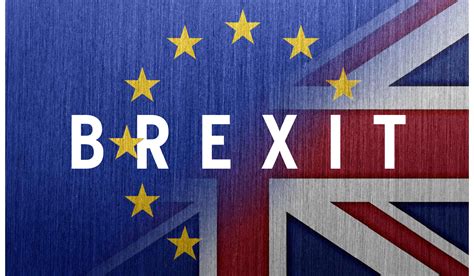I was not too different from probably millions of people worldwide in being at least somewhat shocked at the victory of the “Leave” party (aka Brexit) in last Thursday’s elections in the United Kingdom. True enough, the odds on “Leave” carrying the day had improved considerably in the month leading up to the vote, so much that one poll showed the anti-EU side of the proposition with a ten-point lead.
The horrid murder of Labor MP Jo Cox on June 16, a week before election day, muddied the picture and gave the left in particular but also “Remain” Conservatives an unsought but exploitable opportunity to decry the opposition as violent, racist, and nativist, in other words, to tar and feather them with the usual labels. The short-term result was a narrowing of Brexit’s lead, at least in the polls that showed they had one, and a general perception that “Remain” would somehow carry the day, just as so many of the pundits had predicted from the beginning. Needless to say, they were wrong by, oh, one million plus votes.
The seventy-two percent turnout was the largest in a British election since 1992, which in itself ought to provide some cause for celebration. Indeed, some very notable MPs as high as Prime Minister (or ex-PM) David Cameron noted what was for them the one silver lining—that the people had spoken—in what was otherwise a disaster.
But a lot can happen in twenty-four hours. By the time the morning after became the evening after most of the magnanimous kudos for “democracy in action” had evaporated although not so much at the hands of the leading players in the contest who stayed respectably mum. Doom and gloom made its inevitable appearance. “Brexit devastates young Brits,” Yahoo! Finance discovered (even no one knows how it happened so fast).
George Chesterton—no relation to Gilbert Keith, I’m sure—of Britain’s GQ magazine in a near fit argued that the elderly, meaning, I gather, anyone over fifty, should be banned from voting. Holy smoke, he bellowed, those old fogies read the Daily Mail and they’re against immigration. Prisoners don’t vote and the Queen doesn’t. Ergo, the charitable Chesterton concluded, “My children who, unlike their grandparents, at least can remember what they had for breakfast, are not allowed to vote. Get real, people.”
Man alive, that’s piety.
What “people” did curious George urge to “get real”? I can speak only for myself, but I have the feeling he meant “people” who agree with him. But if that’s the case, and, for my money, his tirade suggests he thinks it is, why have elections at all? Why not simply have Brussels decree the members of the EU permanent without recourse, objections be damned. Indeed, not a few “Remainers” must think so; the chorus for a second referendum—not unprecedented when EU bureaucrats don’t get their way—has already begun.
What this development should reveal with crystal clarity is the left’s dirty little secret, that democracy is fine and dandy only as long as the people keep in line. For fans of Dostoevsky, the view has something of a Grand Inquisitorial understanding of politics, with the added underlying assumption found among leftists from Marx to Obama that history is moving their way. As leftist logic goes, freedom and the institutions associated with a free society (elections, legislative bodies, just to name two) simply make life too messy.
What the world needs now is love sweet love—the love of an educated class of experts, an elite class that knows far better how to govern than the boobs beneath them, the canaille who do little else but sweat, eat, and copulate. Why should lofty souls, Apostles at Cambridge in the 30s and the George Chestertons today, complicate matters by holding elections when a simple decree will do the trick?
The great thing is, as the theory goes, history is doing the legwork; it’s what puts the progress in progressive. And history is almost like God. You can’t see it, except perhaps in a perceptive backward glance, but it’s there, ordering the future according to leftist prescription. Obama’s bromide, as familiar as it is vain, about being on the “right side of history” is bully beef and beer—no, caviar and champagne—to the elitist left, the same old dialectical materialism that used to wear blue jeans and throw Molotov cocktails but now wears a tux and throws Hollywood fundraisers.
Because history is like God and is conveniently moving leftward, woe betide the man, country, or movement that stands in its way. Just as the Inquisition was small potatoes compared to Auschwitz, the Gulag, the Cultural Revolution, or Cambodia’s killing fields, so religious heresy seems a mere peccadillo juxtaposed to political opposition to the left. As Marxists, socialists, and collectivists of every stripe have contended for the last one-hundred-and-fifty years, there may not be a God in heaven, but there is Almighty History.
That’s why lefties almost invariably become apoplectic when events—call it renegade history in the making—throw them a curve. The Reagan Revolution, the fall of the Berlin Wall, the collapse of the Soviet Union sent them reeling—and writing. Did history do that? It’s enough to make one lose his faith.
But talk about true believers! There’s no way the left will abandon its conviction that the triumph of the authoritarian state is inevitable. That’s why Britain’s rejection of the Brussels elite will constitute only a temporary setback. Count on the tuxedoed Brussels bureaucrats, the Obama White House, the Clinton Foundation, and the sycophantic press to fall in line as they condemn Brexit as the end of the world, but never, mind you, the end of history.














